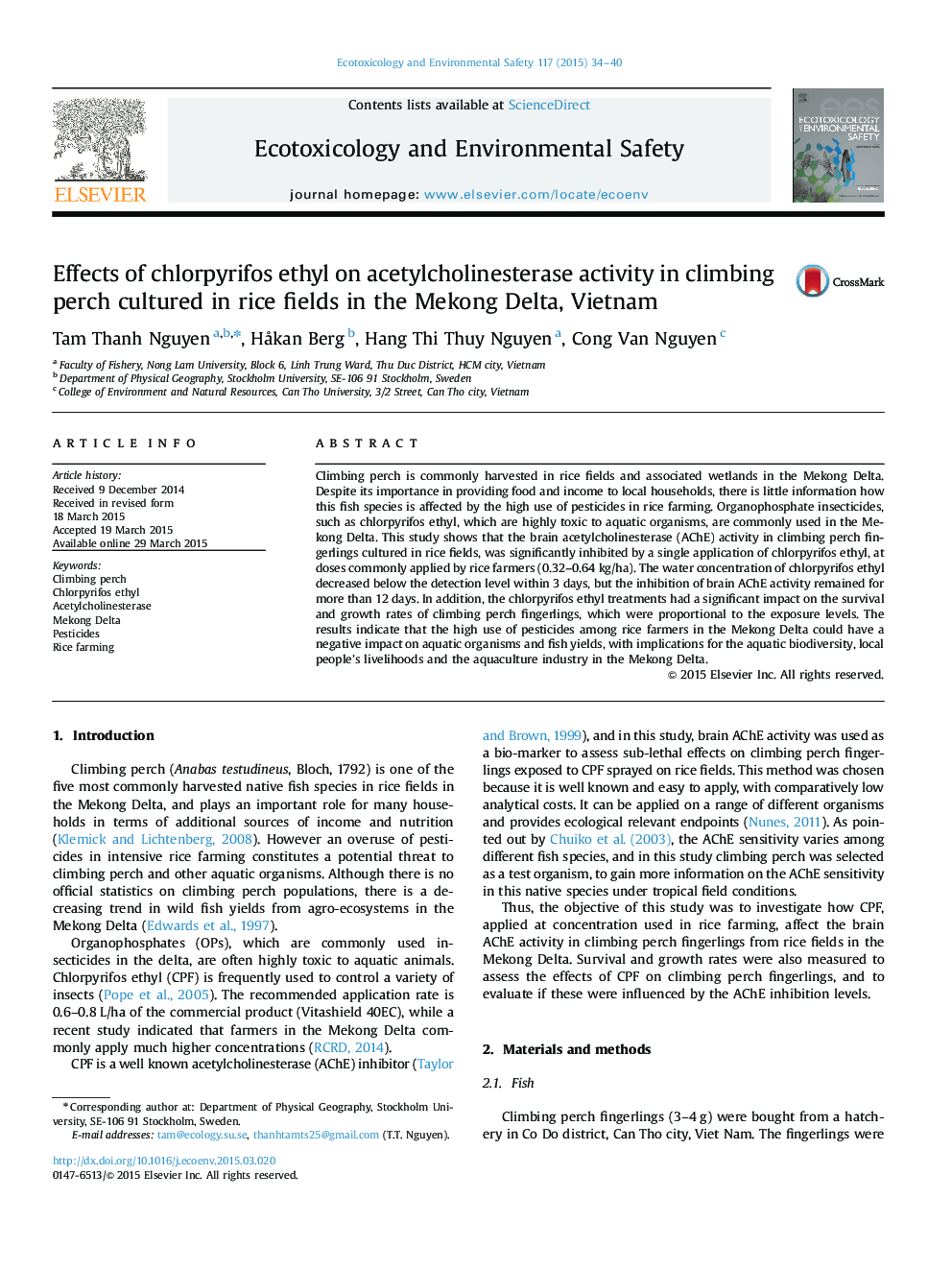| کد مقاله | کد نشریه | سال انتشار | مقاله انگلیسی | نسخه تمام متن |
|---|---|---|---|---|
| 4419588 | 1618946 | 2015 | 7 صفحه PDF | دانلود رایگان |
• Chlorpyrifos used in rice farming inhibit the brain AChE activity in Climbing Perch.
• These effects persist long after (> 12 days) the exposure to Chlorpyrifos has stopped.
• The inhibition of the AChE activity is followed by decreased growth and survival rates.
• AChE activity in Climbing perch is a relevant biomarker for organophosphate exposure.
Climbing perch is commonly harvested in rice fields and associated wetlands in the Mekong Delta. Despite its importance in providing food and income to local households, there is little information how this fish species is affected by the high use of pesticides in rice farming. Organophosphate insecticides, such as chlorpyrifos ethyl, which are highly toxic to aquatic organisms, are commonly used in the Mekong Delta. This study shows that the brain acetylcholinesterase (AChE) activity in climbing perch fingerlings cultured in rice fields, was significantly inhibited by a single application of chlorpyrifos ethyl, at doses commonly applied by rice farmers (0.32–0.64 kg/ha). The water concentration of chlorpyrifos ethyl decreased below the detection level within 3 days, but the inhibition of brain AChE activity remained for more than 12 days. In addition, the chlorpyrifos ethyl treatments had a significant impact on the survival and growth rates of climbing perch fingerlings, which were proportional to the exposure levels. The results indicate that the high use of pesticides among rice farmers in the Mekong Delta could have a negative impact on aquatic organisms and fish yields, with implications for the aquatic biodiversity, local people's livelihoods and the aquaculture industry in the Mekong Delta.
Journal: Ecotoxicology and Environmental Safety - Volume 117, July 2015, Pages 34–40
